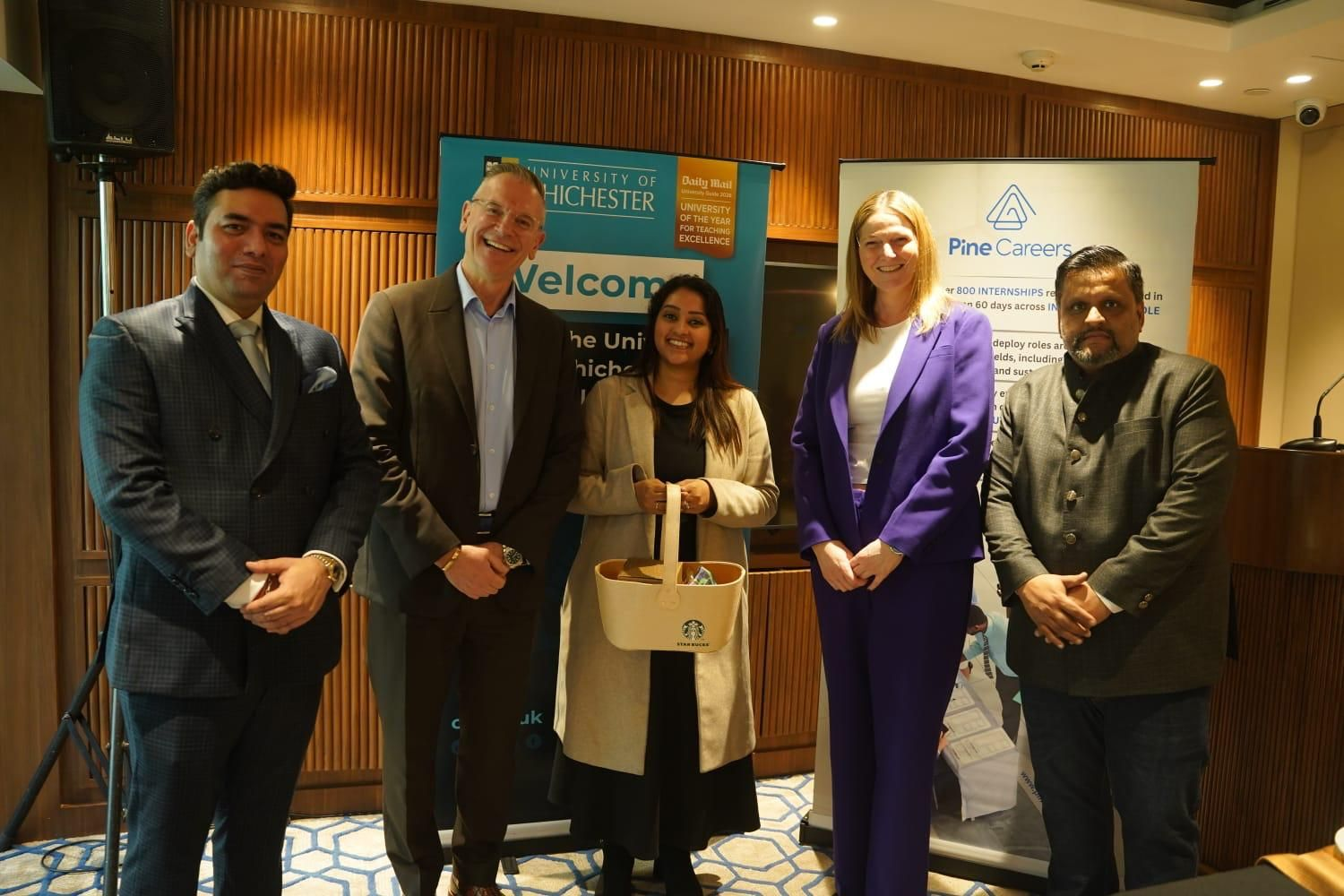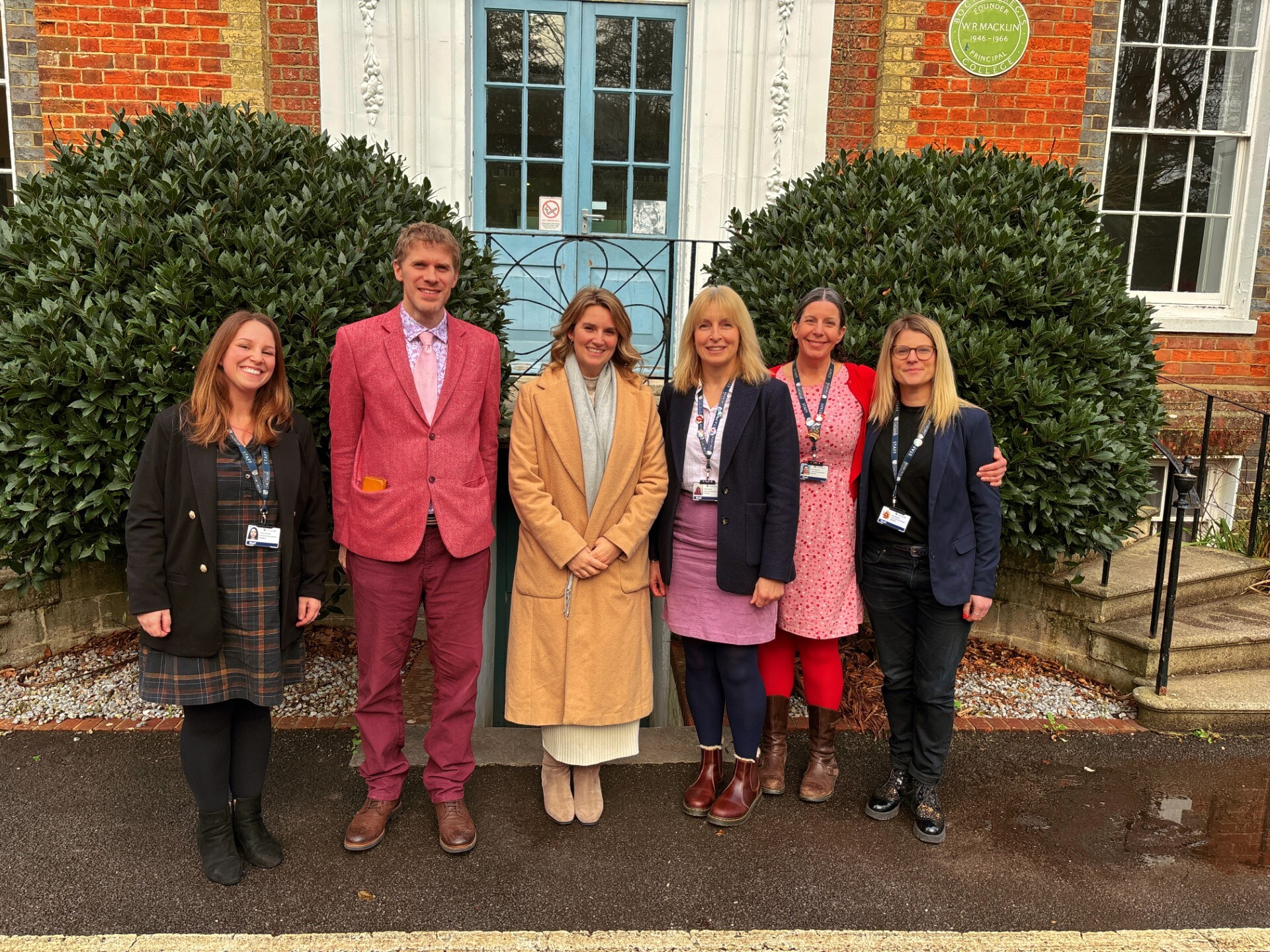New research highlights the gap between technological innovation and reality for individuals living with dementia

Dr Benjamin Sharpe, the manuscript’s lead author
Academics at the University of Chichester have highlighted the critical gap between technological promise and lived reality for people with dementia in a new study conducted in collaboration with a range of universities and charities across the South coast.
It found that innovation developed with the intention to help people, such as voice-assisted devices, can instead cause anxiety, frustration, and increase feelings of incapacity.
The team, supported by Professor Antonina Pereira, Director of the Institute of Psychology, Business and Human Sciences at the University of Chichester, said the research emerged from growing concerns about the disconnect between how we develop assistive technologies and how they work in practice.
The study, titled: ‘Experiences of individuals living with dementia, caregivers, and service providers regarding independence-enhancing technologies: focus group insights’, was published in Disability and Rehabilitation: Assistive Technology.
Dr Benjamin Sharpe, the manuscript’s lead author and Senior Lecturer in Cognitive Psychology at the University of Chichester, said: “We often celebrate technological innovation (medication reminders, GPS trackers, smart home systems) without deeply understanding the day-to-day experiences of the people meant to benefit from them.”
Colleagues from the University of Chichester, Brighton and Sussex Medical School, University of Sussex, Dementia Support and West Sussex Alzheimer’s Society worked together to conduct focus groups with 35 participants, including people living with dementia, informal and formal caregivers, wayfinders and medical experts.
Dr Moitree Banerjee, Head of Psychology and Criminology programmes at the University of Chichester, said: “In an era where prevalence of Dementia is on the rise, collaborative research is crucial to form holistic and innovative solutions. As technologies advance, we must research with communities rather than at them. Our latest paper lays the foundation for future researchers, guiding where technological advancements can make the greatest impact. The sentiment analysis in this paper enables us to highlight the human essence that is often missing in technology research.”
Benjamin highlights: “What emerged was a nuanced picture that challenges many assumptions in the field. Yes, technologies like automatic pill dispensers and emergency call buttons provide genuine empowerment and peace of mind. But the same innovations that enhance independence for some create new frustrations for others. Voice assistants that can’t understand speech affected by dementia, GPS devices with false alarms that increase rather than reduce anxiety, and digital interfaces so complex they reinforce feelings of incapacity rather than capability.
“Perhaps most striking was the participants’ clear preference for audio over video communication, and their strong desire for technologies that connect them to local, in-person activities rather than replacing human interaction entirely. These insights challenge common assumptions about what people with dementia actually want from technology. The implications of this study extend beyond individual devices to fundamental questions about how we design for cognitive diversity. Instead of expecting people to adapt to technology, we need technology that adapts to fluctuating cognitive capacities: systems that provide just enough help when needed while preserving autonomy. This research, I hope, underscores the critical importance of involving people with dementia as partners in design, not just end users. Their expertise about living with cognitive changes must drive innovation, not follow it.”
This collaboration unites the University of Chichester’s expertise in cognitive psychology and assistive technology research with the University of Sussex’s clinical and medical research capabilities, alongside the invaluable frontline experience of Dementia Support’s community-based care services and West Sussex Alzheimer’s Society’s advocacy and support work. This partnership represents the first of many planned collaborative research initiatives between these institutions, creating a powerful model for translating academic research into meaningful real-world impact. The collaboration ensures that technological innovations are grounded in the lived experiences of people with dementia and their caregivers, while academic rigor validates practical insights from service providers.
For more information on psychology courses at the University of Chichester, please go to www.chi.ac.uk/psychology-and-counselling.





